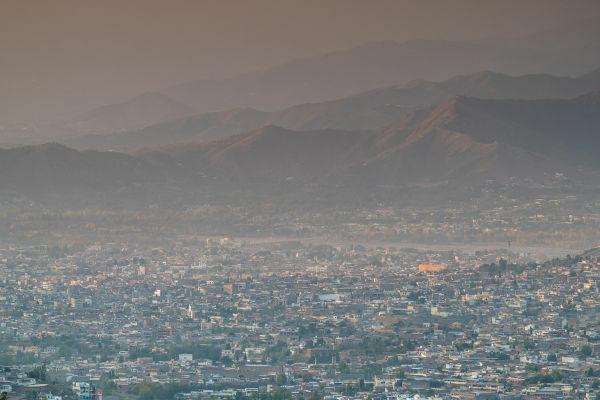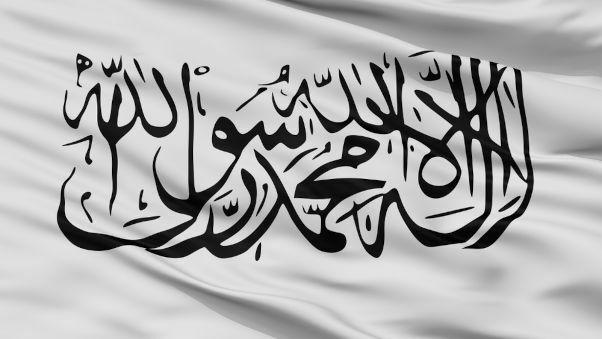Malalayousafzai she is a Pakistani activist internationally known for defending women's right to study. She gained notoriety for having championed this cause in the Swat Valley, a region dominated by the Taliban. In 2012, she survived an attack promoted by this fundamentalist organization, and currently lives in England.
Accessalso: How did the Taliban return to power in Afghanistan in 2021?
Malala Yousafzai Summary
Malala Yousafzai was born in the Swat Valley, in Pakistan, on July 12, 1997.
She was encouraged to study by her father, who owned schools in Mingora.
As a child, she lived in the region that was to be occupied by the Taliban, a fundamentalist organization.
She started to defend the right of women to study, and she and her father were therefore threatened.
On October 9, 2012, she was attacked by the Taliban, and a bullet hit her head. She survived.
In 2014, she received the Nobel Prize of Peace.
Malala Yousafzai's early years

Malala Yousafzai was born on the day July 12, 1997, in Mingora, a city that is part of the Swat Valley, in the province of Khyber Pakhtunkhwa, in the Pakistan. By nationality, Malala is Pakistani, but she belongs to ethnicitypact, a minority group in Pakistan. The Pashto spread across the territories of Pakistan and Afghanistan.
she was the daughter of Ziauddinyousafzai and Torpekaiyousafzai. The family's support came from the schools her father had founded in Mingora, but the family had a very simple life anyway. Malala herself says that when she was born, her parents' house had neither a kitchen nor a bathroom.|1|
Malala grew up in a Muslim family, especially her mother, who is very religious. Her father was already known for being a man dedicated to education and culture. He participated in literary groups and acted as a militant for the environment and education. In addition, he was a great supporter for his daughter to study. This invention made her fluent in three languages: pact, Urdu and English. Malala's family was completed by her two younger brothers: Atal Yousafzai and Khushal Yousafzai.
Know more: Marie Curie – the first person to win the Nobel Prize twice
Malala Yousafzai Education
Even in her childhood, Malala had access to education, and this was due to your father's influence, which, as we have seen, was a educator and school owner. It was through education that Malala managed to become fluent in three languages, and soon she proved to be a very dedicated student, always looking to be the best in the class.
She studied at the institution founded by her father: the SchoolKhushal. She was part of an all-girl class, and her father's influence made her, even as a child, defend women's right to study. Her father's school, in addition to ensuring that Malala had access to studies, allowed her family to improve their financial condition.
Malala narrates that, during her childhood, she liked to read books like Jane Austen's, although she and her friends also liked to read popular culture productions, like the books in the series. Twilight. The young Pakistani woman grew up hearing about the horrors committed by the Taliban in the neighboring country, and considered herself lucky to live in the Swat Valley, a region that was not under the influence of this organization fundamentalist. However, everything changed when the Taliban arrived.
Accessalso: Rosa Parks, the woman who challenged racism in the United States
What is the Taliban?
O Taliban it is a islamic fundamentalist group that emerged in Afghanistan in 1994. The Taliban emerged during the Afghan Civil War, forming within the mujahideen, the so-called holy warriors who fought the Soviets in the 1979 Afghanistan War. The extremist group emerged with the intention of seizing power in this Asian country.
The Taliban makes a radical interpretation of Sharia, a thereHey islamic, and was known for ruling Afghanistan from 1996 to 2001. During this period, there was numerous violence by members of the Taliban. Women were prohibited from studying and working and were required to wear the burka, and offenses were punishable by executions, amputations or public floggings.
the Taliban was removed from power in 2001, when Afghanistan was invaded by US troops. The invasion of Afghanistan was due to the fact that the Taliban gave shelter to osama bin laden and the al-Qaeda. So the Taliban was stripped of power, went through a period of weakening, and then started to grow again, extending its presence to regions in Pakistan and Afghanistan.
Taliban in Pakistan

Malala says the Taliban arrived in the Swat Valley when she was 10 years old. Her soldiers carried heavy knives and weapons. The young woman says that they still had badges that bore the following message: "Islamic law or martyrdom."|2|At first the group members acted reasonably, just encouraging people to correctly follow the principles of Islam.
As a region with a high rate of illiteracy, one of the ways in which the Taliban penetrated it was through radio stations, which brought sermons and urged people to be faithful. Malala said that six months after the arrival of the Taliban, people were already getting rid of belongings, such as TV sets, which had been condemned by the Taliban.|3|
In those first months, the Taliban's strategy was to win people's support, and once that happened, the first chases began. School-going girls began to be condemned in the group's radio broadcasts. Other measures announced were the ban on men shaving and the ban on women from going to the market.|4|
Video lesson on what is al-Qaeda
Pursuit of Malala Yousafzai
The Taliban's advance across the Swat Valley soon put Malala and her family's lives at risk. Her father, the owner of a school that accepted girls, and for that very reason, was threatened. Malala continued to study, and this action would be considered a direct challenge to the orders of this fundamentalist organization if discovered.
The Taliban promoted the destruction of schools to accept girls. After that, bombings became commonplace, including in the city where she lived, Mingora. Through Taliban action, more than 400 schools were destroyed in Swat, and in late 2008, the extremist group announced that women's institutions would be closed by January 2009.
Malala's father began to suffer constant threats, and the young woman was invited to participate in a blogmaintained by the BBC in Urdu to secretly write about what it was like to live in a Taliban-dominated place. In early 2009, she began writing under the pseudonym of GulMakai, a character from Pashto folklore. The first sentence Malala wrote on the blog was: “I'm scared”, an indication that life under the Taliban was not easy.|5| The use of the pseudonym was the way she found to guarantee her safety and that of her family.
The Taliban's war against the Pakistani government caused Malala's family to abandon the Swat Valley. Upon returning to the valley, Malala and her father engaged in advocacy for women's right to study. Malala she started to be sought after by international press vehicles to give interviews about her militancy. In late 2009, it was also revealed that she was the author of the anonymous BBC texts.
Her struggle made her known and increased the stakes against her and her family. Death threats have become common, and Malala became constantly concerned about her safety and that of her family. So she took the bus home instead of walking, and she always made sure the doors to her house were locked.
Despite the precautions, the worst happened. The Taliban decided to carry out an attempt on the student's life in retaliation for her constant criticism of this fundamentalist organization. On October 9, 2012, the bus Malala was on was stopped by Taliban members, and three shots were fired against her.
Know more: Anne Frank – victim of Nazi persecution, recorded this experience in a now very famous diary
Malala Yousafzai after the attack
Malala almost died from the attack, as the projectile fired at her hit your head. She was taken to a military hospital in Peshawar and underwent emergency surgery that was crucial to her survival. The surgery took nearly five hours. While Malala was recovering from her, the Taliban claimed responsibility for the attack.
The attempt on Malala's life had international repercussions, and a few days after the surgery, she was transferredforBirmingham, in England, to receive the best possible treatment until his complete recovery. As a result of the attack, Malala had damage to a facial nerve, which caused the left part of her face to be slightly paralyzed, and also had damage to one of the eardrums.
Malala's role in defending women's right to study and the international upheaval caused by the attack she suffered have caused United Nations Organization (UN) establish the 12th of July as DayinMalala, date used to reinforce to the international community the importance of women's access to education.
The medical expenses of Malala's recovery were paid by the Pakistani government, as was her permanent move to Birmingham. Her move to England was a questioninsafety, as in Pakistan the Taliban would try to kill her again. In England she enrolled in the Oxford University, majoring in Philosophy, Politics and Economics.
After recovering, Malala created the BackgroundMalala, whose objective is to raise money to help women to continue their studies in different parts of the planet. The Fund develops actions in several countries, including Brazil.
The recognition of her work led to her being nominated for several awards, both in Pakistan and abroad. Malala won some of them, the main one being the Nobel Peace Prize, won in 2014.
Video lesson about 10 women in history
Grades
|1| YOUSAFZAI, Malala. I am Malala: the story of the girl who defended the right to education and was shot by the Taliban. São Paulo: Companhia das Letras, 2013. for. 28.
|2| Idem, p. 121.
|3| Idem, p. 123.
|4| Idem, p. 128-129.
|5| Idem, p. 165.
Image credits
[1] kamran kami and Shutterstock
[2] ibrar.kunri and Shutterstock
by Daniel Neves
History teacher
Source: Brazil School - https://brasilescola.uol.com.br/historiag/malala-yousafzai.htm


